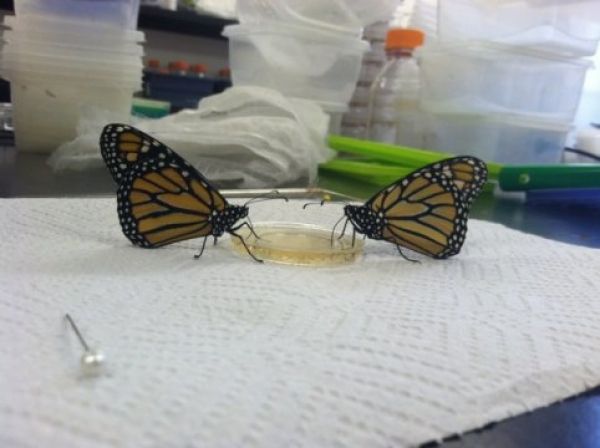LSU researchers have discovered a new relationship between climate change, monarch butterflies and milkweed plants. It turns out that warming temperatures don’t just affect the monarch, Danaus plexippus, directly, but also affect this butterfly by potentially turning its favorite plant food into a poison.
LSU researchers have discovered a new relationship between climate change, monarch butterflies and milkweed plants. It turns out that warming temperatures don’t just affect the monarch, Danaus plexippus, directly, but also affect this butterfly by potentially turning its favorite plant food into a poison.
Bret Elderd, associate professor in the LSU Department of Biological Sciences, and Mattnew Faldyn, a Ph.D. student in Elderd’s lab from Katy, Texas, published their findings today with coauthor Mark Hunter of the Department of Ecology and Evolutionary Biology and School of Natural Resources and Environment at the University of Michigan. This study is published in Ecology, a leading journal in this field.
“A lot of global climate change research focuses on a single species, and how that species will be affected by climate change,” Elderd said. “But we know that in reality, species interact, and they are often tightly linked together.”
One such species interaction is that of the monarch butterfly and the milkweed plant, genus Asclepias. The monarch is an obligate feeder on milkweed. Individuals always lay their eggs on a milkweed plant, and the larvae only develop on various species of this particular plant.
Read more at Louisiana State University
Image: Two monarch butterflies, reared by Matthew Faldyn, feeding on a benchtop in the Elderd Lab at the LSU Department of Biological Sciences. (Credit: LSU)




